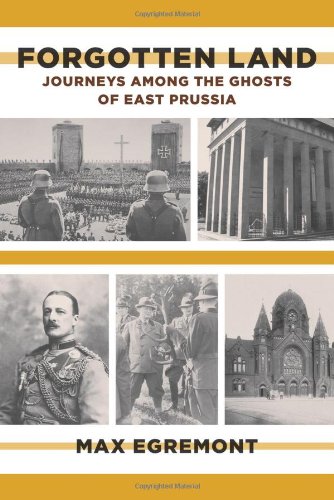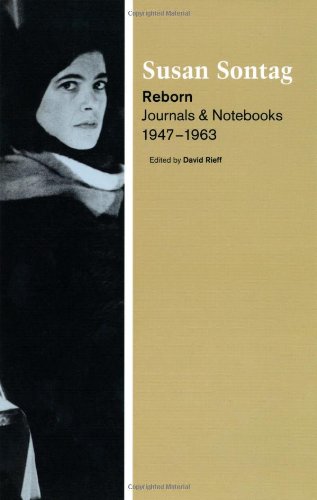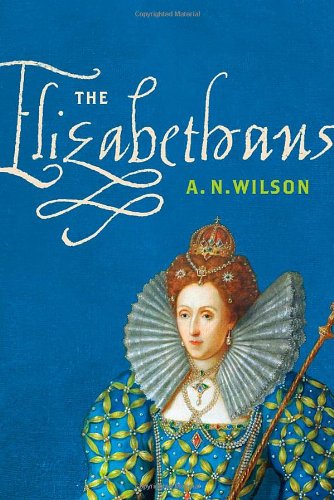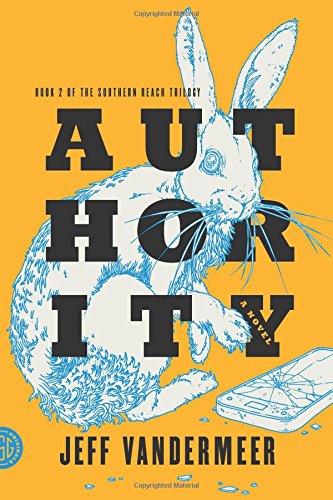Ebook Free A Free Nation Deep in Debt: The Financial Roots of Democracy, by James Macdonald
By downloading the on the internet A Free Nation Deep In Debt: The Financial Roots Of Democracy, By James Macdonald publication here, you will obtain some advantages not to go for guide establishment. Simply hook up to the web and start to download the page link we discuss. Now, your A Free Nation Deep In Debt: The Financial Roots Of Democracy, By James Macdonald is ready to take pleasure in reading. This is your time as well as your calmness to acquire all that you really want from this publication A Free Nation Deep In Debt: The Financial Roots Of Democracy, By James Macdonald
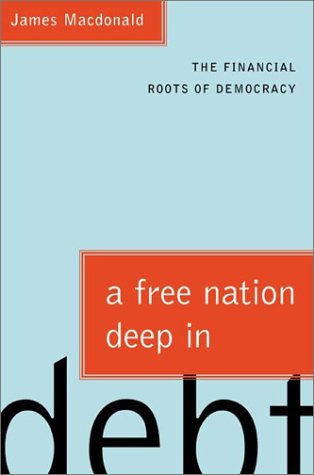
A Free Nation Deep in Debt: The Financial Roots of Democracy, by James Macdonald

Ebook Free A Free Nation Deep in Debt: The Financial Roots of Democracy, by James Macdonald
A Free Nation Deep In Debt: The Financial Roots Of Democracy, By James Macdonald How can you transform your mind to be more open? There lots of resources that can assist you to boost your ideas. It can be from the other encounters and tale from some people. Schedule A Free Nation Deep In Debt: The Financial Roots Of Democracy, By James Macdonald is one of the trusted resources to obtain. You could find a lot of books that we share right here in this website. And also currently, we reveal you one of the very best, the A Free Nation Deep In Debt: The Financial Roots Of Democracy, By James Macdonald
Postures currently this A Free Nation Deep In Debt: The Financial Roots Of Democracy, By James Macdonald as one of your book collection! Yet, it is not in your bookcase collections. Why? This is guide A Free Nation Deep In Debt: The Financial Roots Of Democracy, By James Macdonald that is given in soft data. You can download and install the soft file of this amazing book A Free Nation Deep In Debt: The Financial Roots Of Democracy, By James Macdonald now and also in the web link offered. Yeah, different with the other individuals that search for book A Free Nation Deep In Debt: The Financial Roots Of Democracy, By James Macdonald outside, you can obtain simpler to position this book. When some people still walk into the shop as well as browse the book A Free Nation Deep In Debt: The Financial Roots Of Democracy, By James Macdonald, you are right here just stay on your seat and get the book A Free Nation Deep In Debt: The Financial Roots Of Democracy, By James Macdonald.
While the other individuals in the store, they are not sure to find this A Free Nation Deep In Debt: The Financial Roots Of Democracy, By James Macdonald directly. It might need more times to go store by shop. This is why we intend you this site. We will certainly supply the best means and reference to get the book A Free Nation Deep In Debt: The Financial Roots Of Democracy, By James Macdonald Also this is soft data book, it will certainly be ease to bring A Free Nation Deep In Debt: The Financial Roots Of Democracy, By James Macdonald any place or conserve in your home. The distinction is that you may not require relocate guide A Free Nation Deep In Debt: The Financial Roots Of Democracy, By James Macdonald place to area. You may need only duplicate to the other devices.
Currently, reading this spectacular A Free Nation Deep In Debt: The Financial Roots Of Democracy, By James Macdonald will certainly be easier unless you obtain download the soft data here. Just here! By clicking the link to download and install A Free Nation Deep In Debt: The Financial Roots Of Democracy, By James Macdonald, you can begin to get the book for your own. Be the first owner of this soft data book A Free Nation Deep In Debt: The Financial Roots Of Democracy, By James Macdonald Make distinction for the others as well as obtain the initial to progression for A Free Nation Deep In Debt: The Financial Roots Of Democracy, By James Macdonald Present moment!

Nowadays, the idea that the way a country borrows its money is connected to what kind of government it has comes as a surprise to most people. But in the eighteenth century it was commonly accepted that public debt and political liberty were intimately related. In A Free Nation Deep in Debt, James Macdonald explores the connection between public debt and democracy in the broadest possible terms. He starts with some fundamental questions: Why do governments borrow? How do we explain the existence of democratic institutions in the ancient world? Why did bond markets come into existence, and why did this occur in Europe and not elsewhere?
Macdonald finds the answers to these questions in a sweeping history that begins in biblical times, focuses on the key period of the eighteenth century, and continues down to the present. He ranges the world, from Mesopotamia to China to France to the United States, and finds evidence for the marriage of democracy and public credit from its earliest glimmerings to its swan song in the bond drives of World War II. Today the two are, it seems, divorced--but understanding their hundreds of years of cohabitation is crucial to appreciating the democracy that we now take for granted.
- Sales Rank: #2268892 in Books
- Published on: 2003-01-08
- Original language: English
- Number of items: 1
- Dimensions: 9.30" h x 1.88" w x 6.34" l,
- Binding: Hardcover
- 576 pages
From Publishers Weekly
Public borrowing from citizens in times of war has gone hand in hand with modern democracy, Macdonald argues in this dense, sweeping economic history. A former investment banker now living in London, Macdonald traces the history of public financing of "national emergencies" (read: wars), from the biblical era through the present day. Until modern times, he shows, nations relied on stored treasure and surpluses to finance wars, often with detrimental results. Indeed, Macdonald argues that an inability to raise taxes for wars was one of the causes of Rome's downfall. Placing the importance of credit back at the center of historical causality is one of the book's strengths. The system of public credit swept onto the world stage in 18th-century Britain, France and the United States, and was intricately linked, notes the author, with revolutions in these latter two countries. During the 20th century, the system-and the notion of a "citizen-creditor"-reached its strongest point during WWI and likely had its swan song during WWII, because of postwar inflation, the succeeding decline in trust in government in the West and the increasingly global understanding of citizenship. There is much to learn here, but despite Macdonald's best attempts at accessibility, readers without a background in economics will struggle through.
Copyright 2002 Reed Business Information, Inc.
From Booklist
MacDonald, a former investment banker, examines the historical linkage between political freedom and public debt, showing why representative governments have been able to borrow more cheaply from citizen lenders than autocratic heads of state who do not consider their citizens to be equals. Beginning at the end of the Bronze Age, this wide-ranging, comprehensive treatise traces the story of public finance and political freedom through the Napoleonic Wars to the twentieth century. We learn that the U.S. role in World War I was funded with public debt and, it is interesting to note, that World War II was the last major engagement in which savings bonds were a vital part of national security and the war effort. The mature bond markets of today have a global reach, and governments no longer depend upon citizen lenders. Even when considering the hard facts of money and credit markets--and their political implications--the author emphasizes the relationship between the state and its people, in this well-considered work. Mary Whaley
Copyright © American Library Association. All rights reserved
Review
"Chief Justice John Marshall observed that the power to tax involves the power to destroy. James Macdonald argues that the power to borrow is the key to democracy. This startling and original book traces the evolution of public debt from the Bronze Age to our own and in clear, lucid prose shows that successful state finances have been both a cause and an effect of the emergence of democratic forms. This is a truly unusual work written by somebody who combines financial expertise and historical imagination." --Jonathan Steinberg, University of Pennsylvania
"Macdonald's wide-ranging exploration of representative political institutions and the ability of states to borrow, survive, and prosper is history at its best. Political liberty, sound public financial policies, and well-functioning securities markets nurture one another, but across human history all three have been hardly gained, easily lost, and therefore rare. It is a deep insight, one that all who cherish freedom should understand and heed." --Richard Sylla, Henry Kaufman Professor of the History of Financial Institutions and Markets, Stern School of Business, New York University
"A profound and original work of historical scholarship . . . Macdonald has something exciting to teach." --Niall Ferguson, author of The Cash Nexus
Most helpful customer reviews
21 of 21 people found the following review helpful.
The Relationship of Public Finance and Political Freedom
By Dr. Jonathan Dolhenty
"A Free Nation Deep in Debt" is James Macdonald's first literary contribution to the field of political economy and it is rich in historical detail, a fact which may make it a challenging read for anyone unacquainted with ordinary economic history and its specific historiography. Macdonald, an investment banker for many years who now lives in Oxford, England, discusses the idea that the way a country borrows its money is associated with what kind of government it has. In his discussion, Macdonald traces the evolution of public debt from antiquity to the present, arguing that public finance and political freedom are more closely interrelated than most people realize.
For those who like some structure in a book of this complexity, it can easily be divided into an introduction and four main sections. The first seven pages, with the title "Introduction: The Financial Roots of Democracy," sketches out what is to come, providing the reader with a framework for the coming text and raising the essential questions with which the author will wrestle.
The first section traces the history of public finance and political freedom from the end of the Bronze Age to the end of the Dark Ages, contrasts two different types of finances -- tribal and imperial, explains the historic advantages of autocratic government, considers the critical period when some of the emerging societies settled down and civilized themselves without losing their political freedom, and, in regard to the so-called Dark Ages, asks why they had a more intense and enduring effect in western Europe than in other places. This initial section sets the stage for a comprehensive description of the relationship of public finance and political freedom in the Middle Ages and modern times.
The second section deals with medieval Europe. It was to be the role of medieval Italian city-states to bring back the idea of democratic public financing and modify it so it could become a workable plan for public financing. According to Macdonald, "The system that they created, although in one way fatally flawed, set off a chain of events with results that no one could have predicted." The third section of the book continues the discussion of public finance by looking at the attempts of other European states to come to terms with the implications of the Italian strategy.
The fourth and final section considers events after the French Revolution, and the author suggests that "The outcome of the Napoleonic Wars demonstrated the superiority of a political system based on the alliance of parliamentary government and public debt, but now there was a new question: Would a system created in a world of restricted citizenship and limited franchise prove compatible with universal suffrage. It was the role of the nineteenth century to find a solution to this problem. In the devastating wars of the first half of the twentieth century, this solution was put to the test." And Macdonald concludes that "The First World War was the apotheosis of 'democratic' public finance, the Second its swan song."
Throughout the reading of "A Free Nation Deep in Debt," one is struck continually by both the historical detail the author has uncovered and the factual surprises which he springs on the reader. How many of us realize, for instance, that the problem of public financing was intimately related to the fall of Rome or that in the eighteenth century it was commonly accepted that public debt and political liberty were intimately related? Regarding our own time and country, how many of us realize that the role played by the United States in World War I was funded with public debt?
I will leave it to the experts in economic theory and history to evaluate what appear to be Macdonald's conclusions in this romp through political economy from ancient Mesopotamia to the United States in the twentieth century. Has public borrowing from citizens in times of war gone hand in hand with modern democracy, as Macdonald argues? Does he present a compelling case showing why a democratic government is able to borrow more cheaply from its citizen-lenders than an autocratic state who does not consider its citizens to be equals? Was, in fact, World War II the "swan song" of democratic public financing? And, if true, has this occurred as a result of a decline in the public's trust of government, particularly in Western nations, combined with increasing globalization of the economy?
Readers can decide for themselves whether Macdonald adequately answers the above questions, as well as the other questions he tackles. Suffice to say, "A Free Nation Deep in Debt" is a comprehensive and detailed consideration regarding a certain aspect of economic history, specifically the relationship between public financing and political freedom. Certainly an interesting read, but let the reader beware. This scholarly book is definitely not Sunday afternoon "leisure" reading.
Fortunately for the reader, this book is enhanced with a detailed appendix of notes on currencies which describes them and sets out their relationships in historical context. Furthermore, a helpful glossary is provided which explains the technical terms used in the text, although the educated reader will not have much difficulty with the terms as they are used since they are explained as they occur within the text itself. The author has also provided thirty-five pages of notes, a 21-page bibliography, and a useful index with both major and minor topics listed.
8 of 8 people found the following review helpful.
An excellent history of public debt and its role in developi
By Abacus
This book is not what you think. The title suggests the repeat of the theme exposed by Paul Kennedy in the 80s in his book "The Rise and Fall of Great Powers." But, the two books advance almost symmetrically opposed theories. Paul Kennedy suggested that great powers eventually decline because they can't withstand the fiscal burden of maintaining a nonproductive military effort to govern their empire (the Imperial Overstretch concept). Macdonald instead advances that a public bond market is a nation?s best tool in raising funds for emergencies such as warfare. In Kennedy's book debt is bad. In Macdonald it is good.
Macdonald's argument starts with the fiscal stress associated with having to raise huge amount of funds in preparation for warfare. In such situation, raising taxes is impractical. Often tax rates would have had to double or treble to raise adequate funds to finance wars throughout history. A government can?t do that without causing a revolution. Often what states and government did before the advent of well developed public bond markets was to mine their grounds (or grounds of conquered territories) for mineral riches (gold and silver). The states would then hoard these gold reserves as funds available for a rainy day (war). But, as Macdonald points out this treasure hoarding was most inefficient from an economic standpoint.
Public debt markets became a much preferred alternative to treasure hoarding for financing wars. This was true for several reasons. Treasure hoarding represented a huge amount of wasted capital not reinvested in the economy where it could have generated rapidly rising living standards for society at large. Bond financing (public debt) was so much more flexible a tool for war financing than an ongoing tasking treasure hoarding mechanism.
Comparing two countries, one being a bond borrower, the other a treasure hoarder, one could readily observe that the bond borrower economy would grow much faster, and that it would have an easier time to finance wars when and as needed. Typically, you run out of gold reserve faster than you run out of a state's borrowing capacity.
But, for a public debt market to thrive you need democratic institutions. In democracies, the motivation of the government and its citizen are aligned. This facilitates a trust between the creditors (citizens) and the borrower (the government). As a result, democratic governments can borrow more and at a lower interest costs then other governments. In other words, the creditors of a democratic government assess a lower credit and counterparty risk to a democratic government, and therefore demand a lower risk premium (lower interest rates). This is Macdonald's main argument. Therefore, he concludes that the pressure to create public credit markets to finance wars was an impetus to create public debt markets and in turn to develop democratic institutions.
Macdonald's theory is so current. Today, it is self evident that the countries who have the most transparent disclosure, integer accounting system, accountable governance associated with democracies can borrow at a substantially lower cost than others.
8 of 8 people found the following review helpful.
Well argued even if you don't agree with him
By Steven Martinovich
For the record, I won't pretend to be an expert on public debt and all its related trivia so I'll judge this book as a layman only.
A Free Nation Debt in Debt is an impressive bit of research and analysis. Macdonald does a remarkable job tracing the role of public debt stretching back thousands of years in an attempt to advance the notion that democracies are inextricably tied to government funding, and indeed exist because of it. Throughout history, Macdonald argues, public debt has applied pressure on government to become more transparent to both creditors and the citizens it represents.
Of course, the problem with public debt is that it necessitates taxation -- and it may irk readers to hear Macdonald judge who is under- and over-taxed -- an intimately related issue. In fact, taxation plays such a role that you could argue it's a minor character in Macdonald's story.
Does A Free Nation Deep in Debt succeed? That will depend on your perspective. Small government types probably won't care for Macdonald's primary thesis while others may nod in agreement. Either way, it is a fine example of historical research. Warning: Not a casual read. You don't need a degree in economics to pick this up but don't expect to breeze through through it either.
A Free Nation Deep in Debt: The Financial Roots of Democracy, by James Macdonald PDF
A Free Nation Deep in Debt: The Financial Roots of Democracy, by James Macdonald EPub
A Free Nation Deep in Debt: The Financial Roots of Democracy, by James Macdonald Doc
A Free Nation Deep in Debt: The Financial Roots of Democracy, by James Macdonald iBooks
A Free Nation Deep in Debt: The Financial Roots of Democracy, by James Macdonald rtf
A Free Nation Deep in Debt: The Financial Roots of Democracy, by James Macdonald Mobipocket
A Free Nation Deep in Debt: The Financial Roots of Democracy, by James Macdonald Kindle
